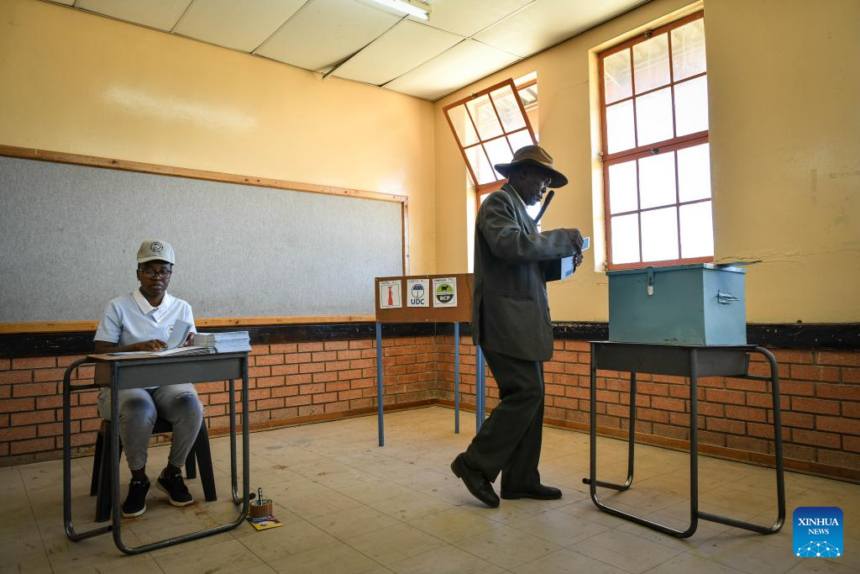GABORONE – The arid and sparsely-populated country of Botswana yesterday counted the votes from elections expected to return president Mokgweetsi Masisi to office after a first term marked by growing unemployment and concerns over the diamond-dependent economy.
Voting on Wednesday was orderly in a country proud of its democratic system installed on independence from Britain in 1966, making it the oldest democracy in the region although it has always been governed by the same party.
The ruling Botswana Democratic Party (BDP) is confident the results, which were expected late yesterday, will extend its 58 years in power, although commentators said weakened support may see the country’s first hung parliament.
Counting for the municipal ballot started immediately as polls closed late on Wednesday while the parliamentary ballot boxes were transported to separate centres.
With 61 parliamentary seats up for grabs, Botswana’s first-past-the-post system means the first party to reach 31 seats will be declared the winner and install its candidate as president.
Masisi, one of four presidential candidates, said after casting his ballot on Wednesday he was confident “victory is certain”.
But many voters said it was time for a change amid allegations of government corruption, nepotism and mismanagement Most of Botswana’s financial assets are held by a wealthy 10% of the population and the gap between rich and poor is one of the largest in the world, according to the World Bank.
Unemployment rose to 27% as the economy suffered from a slump in the market for diamonds, its main source of income.
“The first priority for the next government or president would be to stabilise the economy, create a degree of strategic certainty in the mining sector,” political commentator Olopeng Rabasimane said.
“The second has to be employment generation, especially for young people. The third one would be diversification of the economy from dependency on diamonds,” he said.
Masisi acknowledged concerns about a decline in Botswana’s foreign reserves and weakened international diamond sales, saying the government would increase local investments as a countermeasure.
“We intend to address that by putting money into the pockets of citizens and building infrastructure,” he told reporters.
But the country needs more than construction, said Rabasimane. “You cannot build roads only where there is no money to service those roads.”
In 2023 growth fell to 2.7% from 5.5% in 2022, the IMF stated. It is projected at one percent in 2024.
– Nampa/AFP


